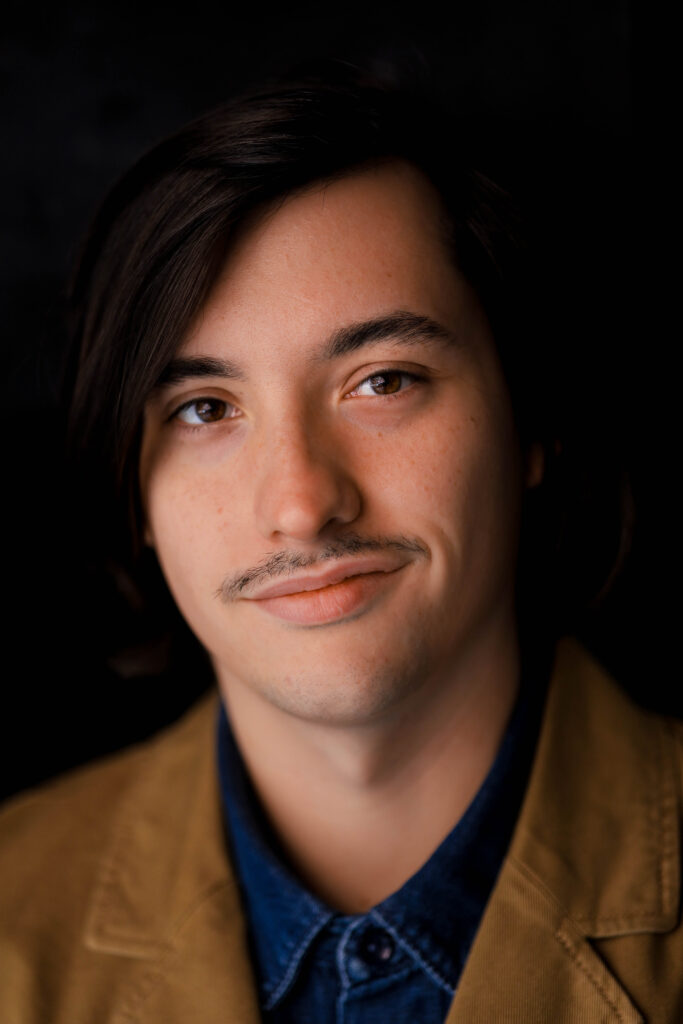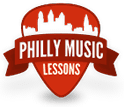
Voice, Guitar, Piano, Banjo
Kyle Chastulik
They/Them/Theirs
M.M Vocal Performance, Temple Universtiy
BFA Vocal Performance, Indiana University of Pennsylvania
Classical, Musical Theatre, Contemporary
My name is Kyle Chastulik and I am a bass-baritone born and raised in Central Pennsylvania. I relocated to Philadelphia to complete my MM degree in Voice Performance at Temple University, following my undergraduate studies at the Indiana University of Pennsylvania.
In school and beyond, I performed in several operas, musicals, and concerts throughout the US. Some highlights from the standard repertoire include the title role in Le nozze di Figaro, Leporello in Don Giovanni, and Golaud in an abridged Pelléas et Melisande. I’ve also appeared in American operas like Menotti’s The Consul, Sondheim’s Sweeney Todd, and Nico Muhly’s Dark Sisters. In concert and recital settings, I’ve sung musical theatre selections with the IUP Symphony Orchestra, the bass solos in Handel’s Messiah, and premiered songs by the composer Charles Shadle.
As a teacher, I hope to provide a space where students feel empowered in their voices and with the repertoire they sing. I believe that the most important aspect when studying voice is a sense of agency and an emphasis on the unique strengths of each individual singer. I look forward to working with students in a variety of repertoire, encouraging exploration beyond the Western Classical canon.
When did you begin playing singing, and why?
I began singing in school musicals right when I began middle school. I then started singing in choirs around the same time. I was attracted to the energy and experience of performing and especially singing with my peers.
What other instruments do you play, and what is your experience with them?
I have been playing the guitar for ten years and also have some experience playing the piano, electric bass, ukulele, and banjo (clawhammer, Bluegrass, jazz, and folk styles). As a composer and arranger, I’ve compiled incidental music for two theatrical productions, a reed quintet, and various arrangements/transpositions of song cycles for use in recital performances.
What are your personal goals as a musician?
My goals as a musician are to contribute to the advancement of new music through performance, collaboration, and inclusion of groups largely ignored by institutions of Western Classical music in programming. I’m especially committed to programming the works of LGBTQIA+ composers and works obscured due to political censorship.
Do you have a memory of a time when a musical concept or technique really clicked? Something you’ll remember forever?
In learning an aria new to me, I was having trouble accessing the higher notes throughout. One day while practicing, I thought “why not just sing a different vowel entirely here?” though this seemed contradictory to the diction and text of the piece, it helped me manage the high-tessitura singing of the aria immensely. This situation and others in my practice have gone to show that sometimes the path to more-secure singing is much simpler than expected and is largely informed by one’s thought processes. Ultimately, the biggest step a singer can take towards advancement with their voice is to not overthink it, or to try the same thing many different ways!
What is your favorite piece of advice from one of your past (or current) teachers?
One piece of advice that I’ve learned from my current teacher is to worry less about what vocal fach (category) I fit into and to focus on what works best for my individual voice. Unlike instruments, not all voices fit the same mold. I’ve been able to dedicate my energy toward how I sing my best, letting the “type” I fit into come second.
What was your most challenging moment learning an instrument?
Though I’ve completed two degrees in singing, I don’t think I’ll ever consider myself as someone who has “mastered” singing; It will be a constant state of learning and shifting as my voice changes with age and experience. Earlier in my undergraduate studies, it took me a while to learn to be patient with my voice. I expected perfection immediately, and placed a huge burden on myself to “do it right.” Now, I recognize that this perfectionism cut off room for me to explore and experiment with my voice, accepting that there will always be challenges to tackle and practice through.
What is your biggest musical achievement?
This past fall, I performed the double role of Prophet/King in Nico Muhly’s opera Dark Sisters. This opera has only been performed a handful of times and there is no professional recording available of the piece. It was equally exciting and terrifying to prepare an opera without reference material or inspiration to draw from. Ultimately, I very much enjoyed relying on my own creative impulses to create this character and to bring the work of a living composer to life.
Favorite thing about teaching?
By far, my favorite thing about teaching is the many “A-ha!” moments I see in singers when working with them. I love seeing singers recognize how to best perform a passage they were previously struggling with.
What is a piece of advice you would like to share with anyone learning music?
BE PATIENT WITH YOURSELF. Know that progress will not always be linear and that there will be some moments when you may feel down about not making a certain amount of progress. With the voice in particular, there will be some days that will be harder to make time for practice. Remember to be flexible with yourself and know that you’re giving all the time you can to your learning this very difficult skill.
Personal music projects:
Most recently, I’ve been doing research on the history of voice types, particularly the delineation between baritone and bass voices in classical music– as well as the way that voice type has evolved in musical theatre styles. I also have been working on a greater project of studying politically left-leaning composers who were at times silenced for the messages spread in their works. I hope to present a recital featuring these works at some point. This recital would showcase works by composers such as Marc Blitzstein, Kurt Weill, and Viktor Ullmann, as well as songs made famous by trailblazing singers like Paul Robeson.
